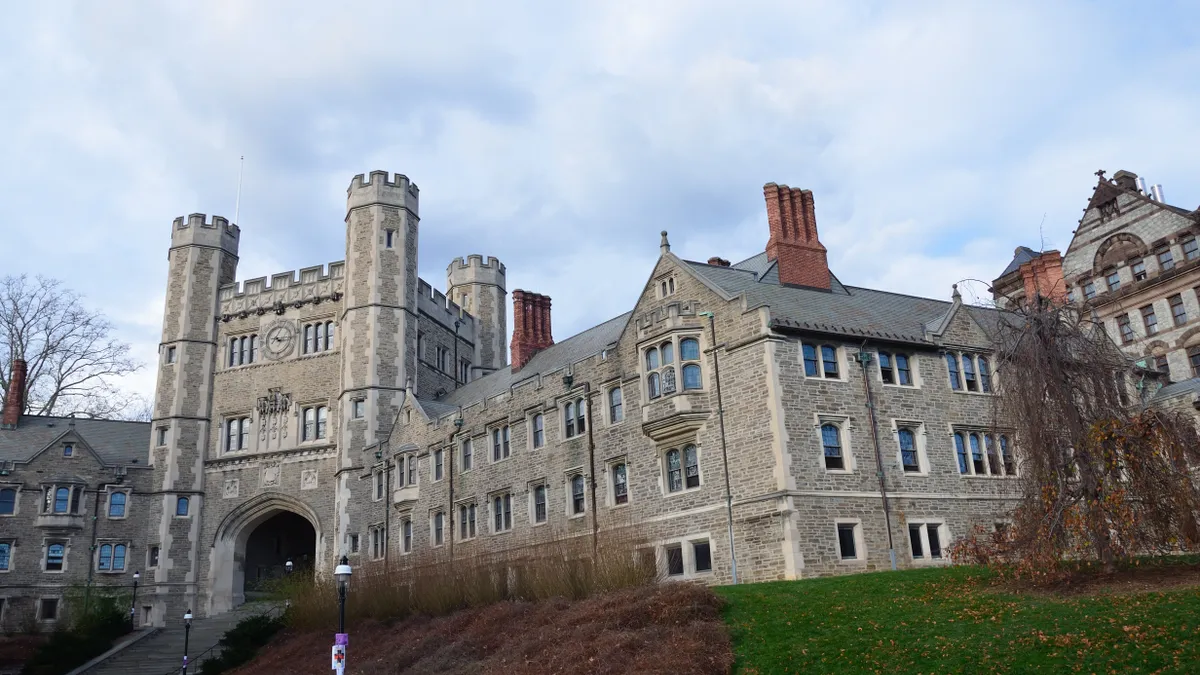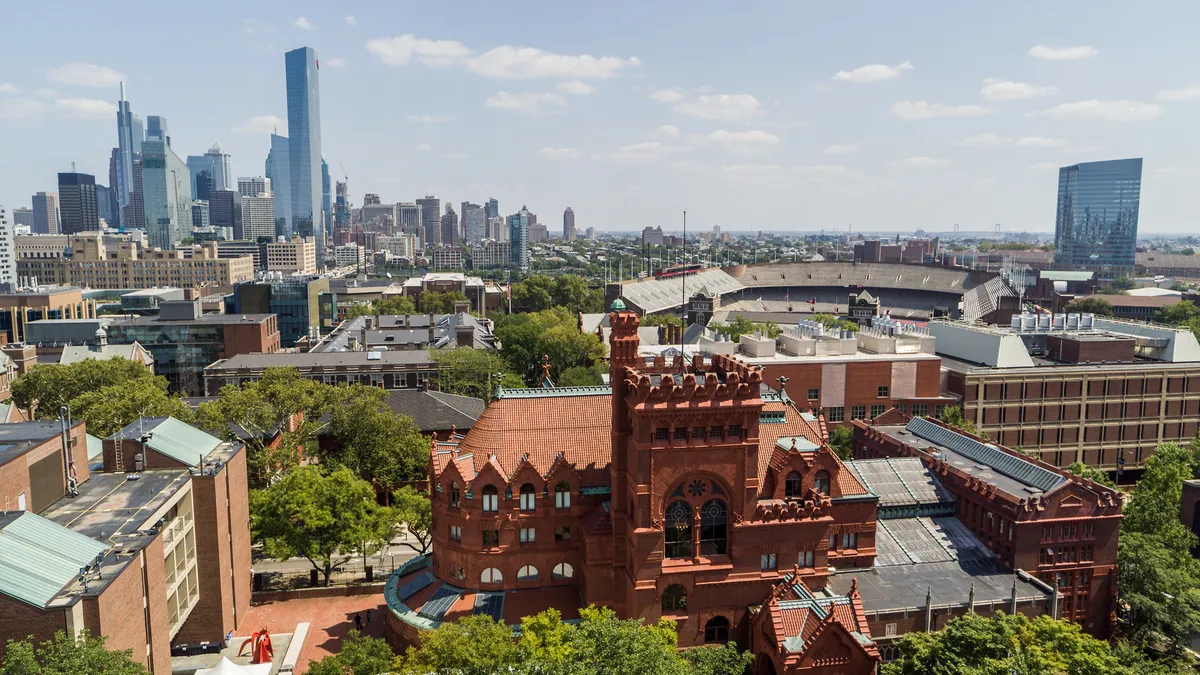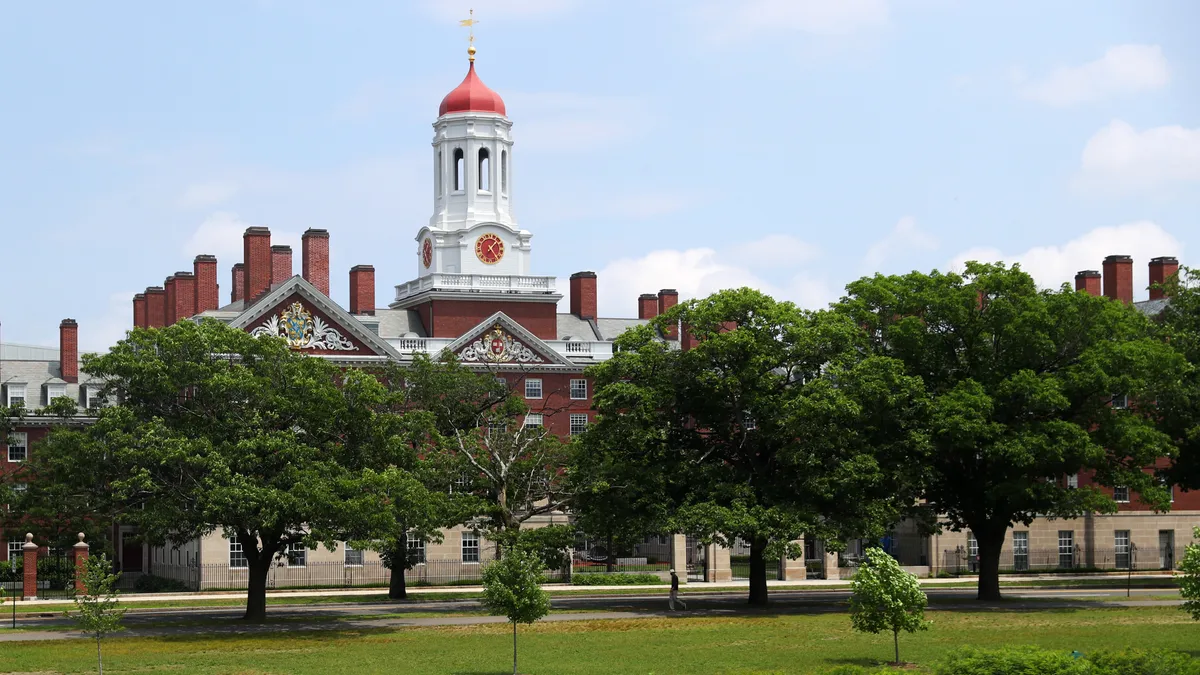New College of Florida is seeking a $400 million state investment over the next five years to help it boost enrollment and compete with other liberal arts colleges, a highly unusual amount for a public institution with roughly 700 students.
New College's president, former Florida House speaker Richard Corcoran, presented a plan to reach 1,200 students by 2028 to the State University System of Florida's board of governors Wednesday. The college had 669 students in 2022.
The 74-page document stressed the college needed $400 million at minimum to meet its goals.
It would use the money, in part, to recruit faculty, address a housing shortage and expand athletics with the goal of remolding New College "into a worldclass classical liberal arts educational institution," according to the business plan.
"Liberal arts done right"
New College, along with Florida broadly, has become a flashpoint in state conservatives’ fight to remake public education.
Republican Gov. Ron DeSantis, a 2024 White House hopeful, named a new slate of right-wing members to New College's board early this year. The group has since set about transforming the state's only public liberal arts college, including by eliminating its diversity office, moving to dissolve its gender studies program, expanding intercollegiate athletics and installing Corcoran as president.
Earlier this year, Florida lawmakers also provided the college with $15 million in immediate additional funding as its leaders sought to remake the institution.
Corcoran, a DeSantis ally, criticized most liberal arts programs in the country during Wednesday's board meeting, saying they are "without question the biggest culprits of delivering a degree that is quasi-useless."
New College lost its way in the past, Corcoran said, but he argued his plan would allow the institution to offer "liberal arts done right."
Improving student retention
The institution needs $61 million to address deferred maintenance after long-term underfunding, Corcoran's plan said. Almost two-thirds of that money is needed to improve student housing facilities that could hold 600 students.
New College only has about 630 beds — far fewer than what it needs to meet its enrollment goals. Moreover, about 100 beds can’t be used currently due to their poor condition, such as air quality issues.
These issues have led to a serious housing crisis, and the college is housing many students at off-campus hotels this fall. The relocation project is costing New College over $2 million this semester, and is expected to cost an additional $5 million in the spring, the plan said.
Additionally, funding would go to improving student life by bettering the campus' food, facilities and programming options.
"In the past, New College assigned most of these quality-of-life issues to students, and such programs were often implemented on an ad hoc basis, according to student interest and impulse," the plan said. "Going forward, we will approach these issues proactively and programmatically."
Corcoran also wants to evaluate the college's admissions metrics. In the past, the institution hasn’t received enough “highly college-ready applicants,” leading officials to admit “applicants that may not have been fully prepared for New College’s academic rigor," the plan said.
Better evaluating prospective students's college readiness and demonstrated interest in New College's mission will inform retention and graduation metrics, it said.
The plan also argues upgrades like improved facilities and food could help improve retention.
Over the past two decades, New College's first-year retention rate has hovered around 80%, which Corcoran's plan described as woeful. The rate of enrollment and attrition between years left the college with "an insufficient and unreliable financial foundation," it said.
Next steps
Funding for Corocron's plan would need to be approved by DeSantis and Florida's Republican-controlled legislature.
New College received almost $64 million from the state for fiscal 2024, according to the report. As a favorite of DeSantis, the college may be entering a more well-funded age.
Last month, New College of Florida's governing board approved Corcoran’s presidential contract, which includes a salary of almost $700,000 and potential performance bonuses. The package is more than double what his predecessor earned and makes Corcoran one of Florida public colleges’ highest-paid presidents.
Students, faculty and alumni and faculty opposed such a generous package for Corcoran, who has not served as a college president before.























